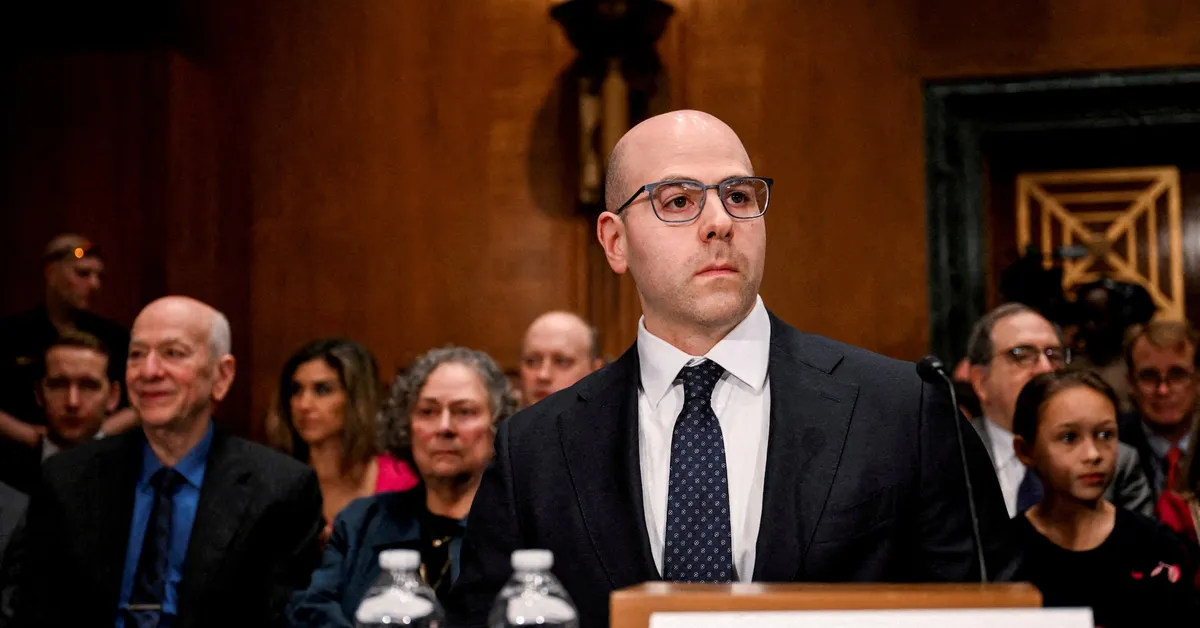
On September 15, 2023, the U.S. Senate voted narrowly to confirm Stephen Miran as a member of the Federal Reserve's Board of Governors. This pivotal decision expands President Donald Trump's influence over the world's most significant central bank, as Miran becomes one of the twelve officials responsible for setting interest rates. The vote, which concluded with a close margin of 48-47, predominantly followed party lines within the Republican-controlled Senate.
The confirmation of Miran marks the culmination of a rapid process initiated in August, following the unexpected resignation of Adriana Kugler from her role as a Fed governor. This vacancy provided President Trump with an opportunity to appoint a candidate who aligns more closely with his objectives of lowering interest rates, a demand he has consistently made throughout the year. Notably, Senator Lisa Murkowski from Alaska was the only Republican to oppose Miran's nomination.
After completing the necessary paperwork and swearing-in process, Miran will participate in the upcoming two-day policy meeting of the U.S. central bank, which begins on Tuesday. During this meeting, Fed policymakers are anticipated to approve a quarter-percentage-point rate cut aimed at bolstering a weakening labor market. Analysts predict that Miran may voice dissent regarding this decision, advocating for a more substantial rate reduction than what has been broadly anticipated.
As the head of the White House's Council of Economic Advisers, Miran has publicly expressed confidence that President Trump's substantial import tariffs will not lead to inflation. He believes that the President's various policies, including immigration reforms, will alleviate overall price pressures by reducing housing demand. Beyond his role in interest rate decisions, Miran will also engage in broader responsibilities as a Fed governor, including financial regulation and supervision, community banking, and staffing and budgetary decisions for the Federal Reserve and its twelve regional banks.
Although Miran will maintain his position at the White House, he will take an unpaid leave during his term at the Federal Reserve, which is set to expire on January 31. However, he could remain indefinitely if a successor for his Fed seat has yet to be appointed and confirmed. Critics, particularly Democrats, have labeled him a "Trump puppet," a claim that Miran has strongly refuted.
In addition to Miran, two other Fed governors appointed by Trump during his first term—Michelle Bowman and Christopher Waller—previously dissented during the Fed's July meeting in favor of easier monetary policy. Given the weaker-than-expected labor market data since then, there are indications that these governors may also dissent in September, advocating for a more significant rate cut than the quarter-point reduction currently anticipated by financial markets. Notably, a triple dissent among Fed governors has not occurred since 1988, during the early tenure of former Fed Chair Alan Greenspan.
As the Federal Reserve continues to navigate the complexities of economic policy, the influence of newly appointed members like Stephen Miran will be critical in shaping the future direction of U.S. monetary policy.